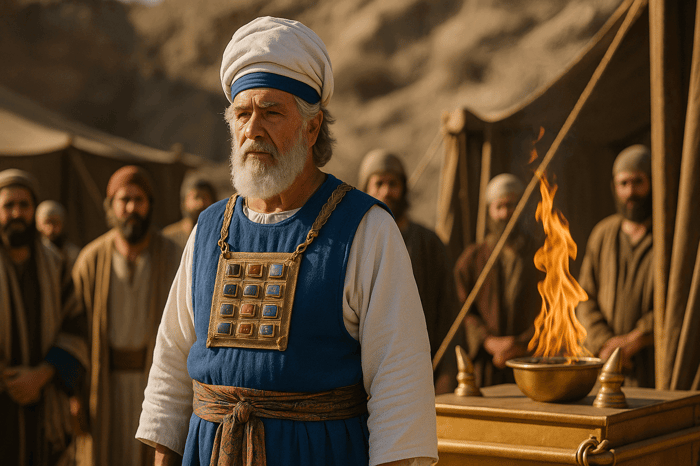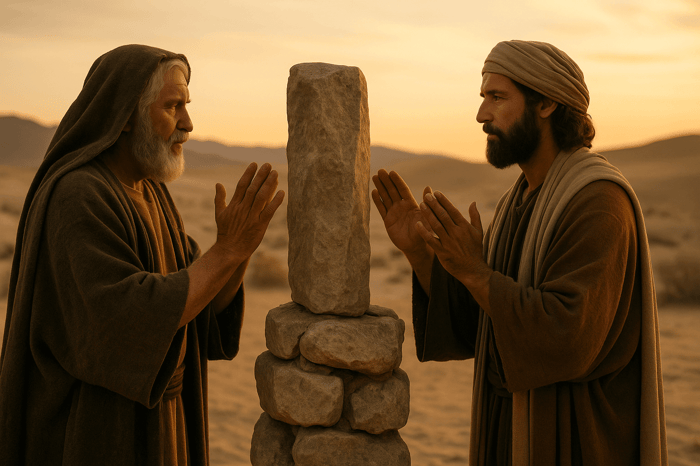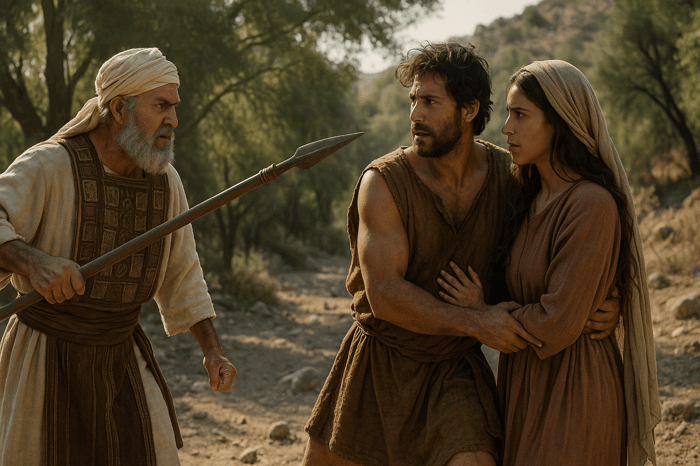Table of Contents
- 1. Eli Was the High Priest of Israel
- 2. Eli Was a Judge of Israel
- 3. Eli Raised Samuel, the Prophet
- 4. Eli's Sons Were Wicked
- 5. Eli Was Warned About His Sons' Behavior
- 6. Eli's Family Was Judged for Their Sins
- 7. Eli Was Overcome With Grief When He Heard of the Ark’s Capture
- 8. Eli’s Death Marked the End of an Era
- 9. Eli Had a Prophetic Role
- 10. Eli’s Leadership Provides Lessons on Responsibility and Accountability
Eli, a significant yet often misunderstood figure in the Bible, served as both a priest and judge of Israel. His story provides valuable lessons in leadership, responsibility, and faithfulness. Below are 10 interesting facts about Eli in the Bible, with supporting Bible verse references to help illuminate his life and role.
1. Eli Was the High Priest of Israel
Eli's primary role was as the High Priest, a position of great responsibility within the Israelite community. He was entrusted with overseeing the tabernacle and performing the religious duties that involved sacrifices and worship.
"Now Eli was very old; and he heard everything his sons did to all Israel, and how they lay with the women who assembled at the door of the tabernacle of meeting." (1 Samuel 2:22)2. Eli Was a Judge of Israel
In addition to his duties as a priest, Eli served as a judge over Israel. Judges were appointed to lead the people of Israel during times of crisis and conflict, ensuring that God's law was upheld.
"And the child Samuel grew in stature, and in favor both with the Lord and men." (1 Samuel 2:26)(This scripture highlights Samuel’s growth under Eli’s influence, as Eli acted as a judge during that period.)
3. Eli Raised Samuel, the Prophet
Eli became the guardian and mentor to the young Samuel, who would later become one of the most prominent prophets in Israel’s history. Samuel was dedicated to the Lord by his mother, Hannah, and raised in the temple under Eli’s guidance.
"Now the boy Samuel ministered to the Lord before Eli. The word of the Lord was rare in those days; there was no widespread revelation." (1 Samuel 3:1)4. Eli's Sons Were Wicked
Eli’s sons, Hophni and Phinehas, were notorious for their corrupt actions. They abused their positions as priests, committing sins such as taking offerings meant for the Lord and engaging in immoral behavior with women at the temple.
"Now the sons of Eli were corrupt; they did not know the Lord." (1 Samuel 2:12)5. Eli Was Warned About His Sons' Behavior
Despite Eli’s leadership role, God held him accountable for his sons’ misconduct. God sent a prophet to rebuke Eli for failing to restrain his sons and for honoring them over God’s commandments.
"Why do you kick at My sacrifice and My offering which I have commanded in My dwelling place, and honor your sons more than Me, to make yourselves fat with the best of all the offerings of Israel My people?" (1 Samuel 2:29)6. Eli's Family Was Judged for Their Sins
Because of Eli’s failure to discipline his sons, God pronounced judgment on his entire family. The Lord declared that Eli’s descendants would no longer serve as priests, and his lineage would be cut off from the priesthood.
"Behold, the days are coming that I will cut off your arm and the arm of your father’s house, so that there will not be an old man in your house." (1 Samuel 2:31)7. Eli Was Overcome With Grief When He Heard of the Ark’s Capture
Eli’s life took a tragic turn when the Ark of the Covenant was captured by the Philistines. Upon hearing the news, Eli fell backward, broke his neck, and died, marking a sorrowful end to his leadership.
"Then it happened, when he made mention of the ark of God, that Eli fell off the seat backward by the side of the gate, and his neck was broken, and he died." (1 Samuel 4:18)8. Eli’s Death Marked the End of an Era
Eli's death marked the end of his era as both a judge and high priest of Israel. His passing symbolized a shift in leadership, with Samuel emerging as the next prominent figure in Israel.
"And the Philistines took the ark of God and brought it from Ebenezer to Ashdod." (1 Samuel 4:11)(This scripture illustrates the major shift in leadership and the dire consequences of Eli’s death.)
9. Eli Had a Prophetic Role
Though Eli is often remembered for his shortcomings, he also played a prophetic role in the Bible. He recognized God’s call on Samuel’s life and helped Samuel respond when God called him.
"So Eli said to Samuel, 'Go, lie down, and it shall be, if He calls you, that you must say, Speak, Lord, for Your servant hears.'" (1 Samuel 3:9)10. Eli’s Leadership Provides Lessons on Responsibility and Accountability
Eli's life demonstrates the importance of being responsible and accountable as a leader. Despite his dedication to his priestly duties, his failure to properly manage his family and discipline his sons led to dire consequences. Eli’s story teaches that true leadership is not just about public service but also about maintaining personal integrity and righteousness.
"But I will raise up for Myself a faithful priest who shall do according to what is in My heart and in My mind." (1 Samuel 2:35)




